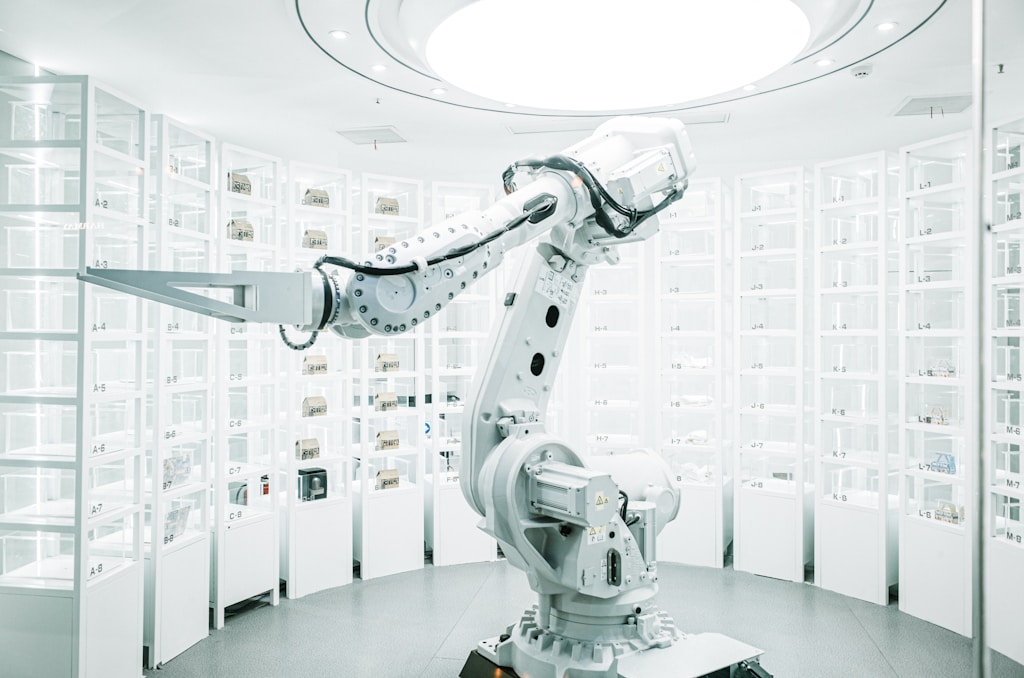
Technology is rapidly changing the way healthcare works, improving efficiency and precision in patient care. From improved treatment plans to faster diagnoses, artificial intelligence is simplifying difficult procedures previously prone to delays and mistakes. AI-driven solutions are boosting patient outcomes, increasing the accuracy of medical operations, and changing hospital management as healthcare systems keep developing. The move toward intelligent automation alters the whole healthcare experience for professionals and patients, not only increasing efficiency.
1. Enhancing Diagnostic Accuracy and Efficiency
Medical diagnostics call for accuracy since a small error could have major results. Analyzing enormous volumes of medical data in a fraction of the time it would take a human specialist allows AI-powered technologies to increase the accuracy of disease identification greatly. Advanced machine learning models examine complicated imaging scans, lab findings, and patient histories to find trends that might be missed with more traditional approaches. AI-powered diagnostic systems enable healthcare providers to detect cancer, neurological disorders, and cardiovascular diseases earlier than ever before. The ability to flag abnormalities with high accuracy helps clinicians to act immediately, therefore increasing the possibility of effective treatment. As artificial intelligence develops, it lowers the possibility of diagnostic mistakes and enables doctors to make well-informed decisions more confidently.
2. Optimizing Treatment Plans and Personalized Medicine
Creating the proper treatment plan calls on a thorough knowledge of a patient’s medical background, genetic composition, and lifestyle choices. By examining these factors and customizing treatment plans to fit individual requirements, artificial intelligence is making this procedure more precise. Medical experts can now design individualized treatment programs that maximize recovery rates and reduce side effects, therefore transcending the reliance on broad protocols. Real-time patient responses to medication are evaluated by AI-driven algorithms, which also suggest alternative therapy and change dosages as necessary. This degree of accuracy guarantees patients get the best treatment available without needless trial and error. By means of predictive analytics driven by artificial intelligence, healthcare providers can foresee certain difficulties before they appear, therefore improving patient safety and long-term health results.
3. Improving Hospital Operations and Resource Management
Effective resource allocation, staffing, and scheduling define the seamless running of a healthcare institution. By forecasting patient admittance trends, streamlining staff deployment, and guaranteeing enough supply levels, artificial intelligence is revolutionizing hospital management. Intelligent automation removes inefficiencies, generating long wait times, crowding, and equipment shortages. AI systems correctly predict patient flow by examining past data, therefore enabling hospitals to improve their preparations for busy times. By streamlining administrative processes, healthcare automation solutions help medical practitioners save crucial time and reduce paperwork. These developments minimize running expenses and enhance service quality, therefore improving the whole experience for patients and medical staff.
4. Strengthening Preventive Healthcare and Disease Prediction
Reducing the load of chronic diseases and controlling disease outbreaks depends on preventive healthcare, which is becoming ever more crucial. By analyzing genetic predispositions, lifestyle choices, and environmental factors, AI-driven analytics allow for the early identification of possible health risks. Healthcare professionals can use this predictive capacity to advise preventative actions meant to assist in stopping the start of major diseases before they become established. Smart monitoring systems with AI sensors and wearable gadgets track vital indicators constantly, notifying doctors and patients of any anomalies. These real-time insights enable people to make healthier decisions and seek medical care before complications arise. On a broader scale, artificial intelligence is enabling public health experts to watch infectious disease trends and assist in the containment of outbreaks before they spread widely.
5. Accelerating Drug Development and Medical Research
Developing new medications and treatments takes time and calls for careful research, clinical testing, and regulatory approval. AI is significantly accelerating drug discovery by analyzing biological data, identifying promising compounds, and predicting potential side effects with high accuracy. AI lowers the trial-and-error phase by fast processing difficult datasets, therefore enabling researchers to bring life-saving medications to market far more quickly. Using artificial intelligence, pharmaceutical companies are modeling drug interactions and forecasting the performance of new drugs in different patient populations. While preserving strict safety criteria, this method lessens reliance on protracted clinical trials. AI is also assisting researchers in discovering previously unknown connections between diseases, resulting in groundbreaking medical advances with the potential to reshape the future of healthcare.
Conclusion
AI integration into healthcare is producing a smarter, more effective system that advantages medical personnel as well as patients. AI is revolutionizing the healthcare sector at an unheard-of speed with its capacity to improve diagnosis accuracy, maximize therapies, simplify hospital operations, increase preventative care, and hasten drug discovery. As these technologies advance, the future of healthcare will be defined by increased precision, faster decision-making, and better patient outcomes.
Featured image credit: Unsplash.